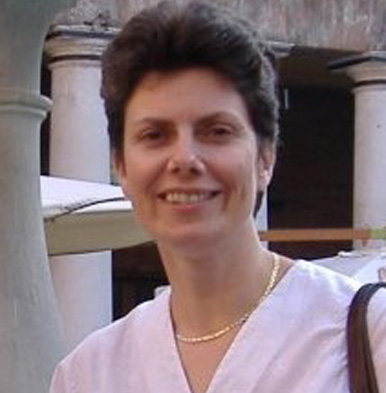Although one never stops learning, the first years of life are indeed crucial for the development of one’s character and aspirations. Hence, the quality of one’s learning experiences are crucial. Here, PROF VALERIE SOLLARS, who is currently working on identifying how different stakeholders in local early-childhood education define quality, tells us more about her project.
 While academic subjects, such as languages, arithmetic and sciences, play a vital role in a person’s education, there are many other lessons a person must learn to be a good, well-rounded and happy individual… Particularly in the crucial years between birth and turning eight.
While academic subjects, such as languages, arithmetic and sciences, play a vital role in a person’s education, there are many other lessons a person must learn to be a good, well-rounded and happy individual… Particularly in the crucial years between birth and turning eight.
“Assuming a child is exposed to high-quality provision, there are many gains associated to their well-being and socio-emotional development, such as discovering more about themselves; learning to work and play with others; developing skills related to collaboration, sharing, and taking turns; and gaining independence,” explains Prof Valerie Sollars, who has drawn up policies at a national level and teaches students at under- and post-graduate levels at the University of Malta.
“Through their active engagement with highly-motivating learning experiences and activities, which capture young children’s imagination, young children can begin to extend their concentration and develop perseverance and resilience when faced with challenges,” she continues. “Their understanding of the world around them increases as they ask questions, hypothesise and seek answers to satisfy their curiosity Simultaneously, their skills in becoming more effective communicators, together with their growth as individuals who are inquisitive, contribute towards the development of a positive disposition towards learning.”
As such, understanding who the different stakeholders in local early-childhood education are, and how they define quality, is incredibly important – particularly as the level of education today’s children receive will make a huge difference to tomorrow’s society.
Of course, what constitutes quality learning in early years varies depending on whose perspective is considered and the context within which one operates. Several studies have been conducted internationally, and variations have arisen depending on what is being ‘measured’, how it was being assessed, and who was making the claims. In the current, local study, Prof Sollars, however, wanted to collect information directly from the key stakeholders involved: the practitioners, the parents and the children.
“Gaining insights into stakeholders’ understanding of quality issues in early years-settings – be they childcare or kindergarten settings – offers opportunities about the potential match or mismatch between what young children are capable of achieving and adult’s perceptions and expectations of what young children should be achieving,” explains Prof Sollars.
In order to get a broad picture of early-childhood learning experiences in Malta, Prof Sollars conducted various interviews and discussions with just under 450 practitioners, as well as spent numerous hours conducting observations in many settings. In addition, Prof Sollars sent out over 4,000 questionnaires to parents, 47% of which (around 1,960) were completed and returned.

“I believe that one important outcome from this research will be to inform and guide policy development in order to improve the quality of services available and, thus, provide better learning experiences for the children,” she adds. “Early childhood education in the local context has a rather chequered history but research has indicated that those early years are crucial as they are the foundations which set the stage for a child’s development and later achievements.”
In this project, Prof Sollars has sought to have a representative sample and included practitioners and parents from the State, Church and Independent settings, in Malta and Gozo, working or using the services of childcare or kindergarten settings.
“I hope that the findings and conclusions can be shared with specific entities which may be interested in feedback about their setting, as well as with a wider audience. Considering the amount of data amassed and the background of participants, the results can also shed light on national policies in order to improve and strengthen the quality of children’s learning experiences.”
Understanding the importance of such research, RIDT helped Prof Sollars through direct funding, which predominantly facilitated the data collection and inputting. Research, after all, is not solely about finding cures or achieving tomorrow’s inventions, but also about understanding the here and now, and how we could improve tomorrow’s generation’s experiences and reality.
As Prof Sollars puts it, the project sought to focus on “the child as an individual, as a learner and as a citizen; and the quality of the learning experiences children get while attending formal settings in early childhood… Because, ultimately, as far as I’m concerned, firm foundations in the early years are non-negotiable.”
The results for Prof Sollars’s project will be published in due course, but it’s safe to say that, through this research some very important information will be made available to everyone.
Help us fund more projects like this as well as research in all the faculties by donating to RIDT. Click here for more information on how to donate.
